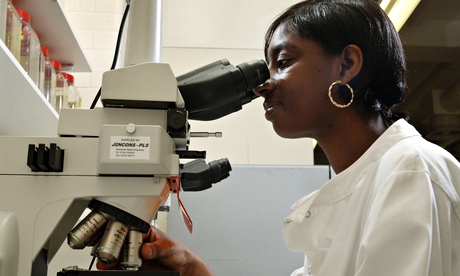
The Guardian has reported that Scotland’s universities were bracing themselves for a brain drain in the event of a Yes vote in the referendum on independence. Here the vice-chancellor of Robert Gordon University explains why he believes these concerns are misplaced.
Academic research is one of the more unlikely issues to have become prominent in the debate on Scottish independence. Higher education as a whole is less in the spotlight because education is already a devolved matter under the Scotland Act 1998, and so the Westminster government has no jurisdiction over the Scottish higher education sector. But research is another matter, because the UK research councils provide funding across the UK, and it is regularly pointed out that Scottish universities attract a significant share of the money.
Partly because of this, some academics have suggested that independence would create a major risk: it might not be possible to sustain a common research area across Britain, and in consequence research quality and outputs might suffer and key researchers might leave.
There is no doubt that academic research is vital to a growing, innovation-led economy. Therefore it is worth looking closely at the arguments and stepping beyond rhetoric and general claims. First, how important is Scotland’s participation in UK research councils? The answer is that it is important, but it needs to be seen in context. The research councils provide less than one third of Scotland’s academic research funding, and as new schemes come into existence – as for example Scotland’s innovation centres run by the Scottish Funding Council – that proportion may drop.
The research councils are still significant, however, and they provide access to high-value research partnerships across Britain. Will they continue to include Scotland? That is primarily a political question. In March, professor Paul Boyle, chief executive of the ESRC and representing Research Councils UK, told a committee of the Scottish parliament in the context of Scottish independence: “We strongly support Scotland retaining its position in a single research ecosystem, because there is a series of advantages in that.”
He made clear that there would need to be negotiations – a point echoed by the Scottish government – but how it plays out in practice will depend on the political mood after the referendum. In the end it seems likely that some accommodation will be found, even if the terms of Scotland’s participation may be slightly different in the new setting.
But Scotland needs to ensure that its research system meets a number of national needs, whatever the constitutional arrangements. Scotland’s academic research is universally recognised as excellent, for example, but business and industry R&D is well below international benchmarks. There is some evidence that academic research has not always focused on areas of major national economic, social and cultural need. This means that a framework of research policy, probably run through a Scottish research council (which could also be the point of contact with UK research councils), should be a priority for Scotland after the referendum.
The argument that Scotland will lose leading academic researchers, and that it would find it hard to recruit new ones to replace them, does not stand up to much scrutiny. Boyle, at the same hearing at the Scottish parliament, stated explicitly that he did not think that Scottish independence would change the ability of Scottish universities to recruit and retain key international researchers.
But the important point here is that if Scotland maintains serious research funding in a focused way, all the evidence suggests that it will continue to attract leading researchers. Science Foundation Ireland, a national foundation for investment in scientific and engineering research, has been able to bring world-leading academics to the country on the back of a clear policy of funding high-value and excellent projects, many of which involve international partnerships. A by-product of this has been the US-Ireland R&D Partnership (on whose board I sat for a few years), which has funded high-value collaborations across the Atlantic.
The key to continuing research performance and success for Scotland is the maintenance of significant research funding. The Scottish government has stated repeatedly, in its paper Higher education research in an independent Scotland and elsewhere, that it will maintain research funding at least at current levels. I have little doubt that Scotland’s academic researchers will continue to thrive. Moreover, I am confident that they will help to create an innovation culture in industry and society – and all of Scotland will benefit from that.
Ferdinand von Prondzynski is vice-chancellor of Robert Gordon University.
More like this:
• Scottish independence and its impact on higher education
• Why Scottish universities must remain neutral in the independence debate
Join the higher education network for more comment, analysis and job opportunities, direct to your inbox. Follow us on Twitter @gdnhighered.











